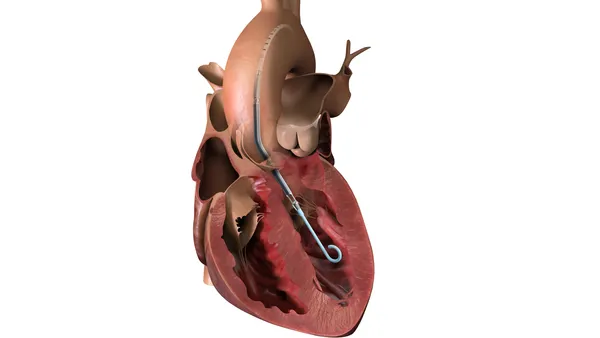Dive Brief:
-
FDA has awarded breakthrough device status to iCubate’s assay for detecting and identifying potentially pathogenic non-tuberculosis Mycobacterium (NTM), the company announced last week.
-
The Huntsville, Alabama in vitro diagnostics-maker designed the test to identify the six NTM species that most commonly cause pulmonary infections directly from decontaminated sputum samples.
- By eliminating the need to culture samples, iCubate said it can accelerate the diagnosis and treatment of a disease that affects more than 80,000 people in the U.S.
Dive Insight:
Lung infections with NTM can cause progressive disease characterized by symptoms such as cough, fatigue and weight loss. The American Lung Association said early diagnosis is essential for good outcomes, but the culture of a respiratory specimen is also required to make a definitive diagnosis.
British Thoracic Society guidelines published in 2017 flesh out what that means in practice. The guidelines state samples should be cultured "for 8 weeks extending to 12 if necessary" and advise against the routine use of faster, non-culture-based detection methods.
iCubate wants to change how NTM infections are diagnosed. To accelerate the process, iCubate is developing a multiplexed in vitro diagnostic, called iC-Myco Assay, that identifies the six bacterial species that typically cause NTM lung infections. The tests come on a cassette preloaded with the reagents required to amplify and detect bacteria in the sample.
Other pieces of iCubate equipment are needed to process and analyze the samples. Once a sample is added to a cassette, the assay is loaded into iCubate’s Processor. This device performs automated sample preparation, after which the cassette is loaded into iCubate’s Reader for analysis.
The lack of a culture step in the process means iCubate’s process is faster than existing standard methods for detecting NTM pathogens. However, there is evidence that the speed of the test is only one of the barriers to fast diagnoses. When FDA met with NTM lung infection patients in 2015, the agency found everyone "reported having symptoms for several years prior to a formal diagnosis."
Securing the FDA breakthrough designation boosts iCubate’s chances of cutting the time it takes to diagnose NTM infections. Prior to potential approval, iCubate will benefit from more frequent interactions with FDA and potentially expedited review. Once on the market, iCubate may benefit from a CMS rule that changes the reimbursement process for breakthrough inpatient, and possibly outpatient, devices.
As of Aug. 1, FDA had given breakthrough status to 186 devices over the course of the program's more than four-year history.
iCubate currently markets an assay for detection and identification of potentially pathogenic gram positive bacteria, which can cause bloodstream infection, which won 510(k) clearance in 2017.











